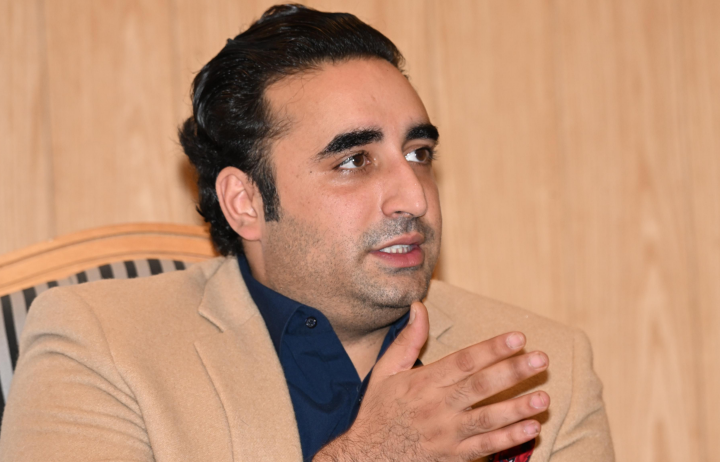
ISLAMABAD: Pakistan Peoples Party (PPP) Chairman Bilawal Bhutto-Zardari has firmly rejected India’s accusations of Pakistan’s involvement in the recent Pahalgam terrorist attack, stating that Islamabad neither participates in nor permits any group to carry out cross-border terrorism.
In an interview with Indian journalist Karan Thapar, Bilawal emphasized Pakistan’s own struggles with terrorism, noting that over 92,000 Pakistanis, including civilians and security personnel, have lost their lives in the fight against extremism.
Pakistan’s War on Terror: A Bloody Battle
Bilawal highlighted the severity of terrorism in Pakistan, stating, “Just last year, we lost more than 1,200 civilian lives in over 200 terrorist attacks. If this trend continues, 2025 could be the bloodiest year in Pakistan’s history.”
He expressed deep empathy for the victims of the Pahalgam attack, saying, “I too am a victim of terrorism. I understand the pain and trauma these families endure in a way many cannot.”
Roots of Militancy and Pakistan’s Actions
Discussing the origins of militant groups like Lashkar-e-Taiba (LeT) and Lashkar-e-Jhangvi (LeJ), Bilawal explained that they emerged during the Cold War era when they were seen as “freedom fighters” rather than terrorists.
*“These groups trace their roots to the Afghan jihad. Post-9/11, Pakistan took decisive action against them in line with FATF guidelines,”* he said, detailing Pakistan’s crackdown:
- 2,645 terror financing cases filed
- 2,727 arrests made
- 549 convictions secured
- 80+ organizations banned
Hafiz Saeed’s Case & India’s Lack of Cooperation
On Hafiz Saeed, the LeT founder, Bilawal clarified that while he was sentenced to 31 years for terror financing, the Mumbai attacks case remains pending due to India’s refusal to provide witnesses.
“We want justice for Mumbai victims, but India must cooperate. Without witness testimony, convictions are impossible,” he stressed.
India’s Disinformation & Unproven Allegations
Bilawal accused India of spreading false narratives about Pakistan’s role in the Pahalgam attack.
“India lied to its people. They accused us but refused an impartial international inquiry. To this day, they haven’t provided evidence,” he said, contrasting it with Pakistan’s handling of the 2007 Samjhauta Express blast, where 40 Pakistanis were killed but India failed to deliver justice.
India’s Role in Pakistan’s Terrorism
Bilawal accused India of supporting terrorism in Pakistan, citing:
- Kulbhushan Jadhav’s arrest (an Indian spy caught in Balochistan)
- Jaffer Express bombing (linked to Indian intelligence)
“India acts as a bully, using terror cells to destabilize us,” he said, referencing DG ISPR Lt-Gen Ahmed Sharif Chaudhry’s recent allegations of RAW’s involvement in attacks inside Pakistan.
A Plea for Peace & Regional Stability
Bilawal urged India to end disinformation campaigns and work towards peace.
“Not every Pakistani is a terrorist. We are not enemies. I want future generations to live in peace, not fight over Kashmir or water,” he said, condemning India’s threats to cut off Pakistan’s water supply as “inhumane and dangerous.”
Conclusion: A Call for Honest Dialogue
Bilawal’s message was clear: Pakistan seeks justice, not war. He called for cooperation in terror investigations and warned against letting third parties exploit India-Pakistan tensions.
“India’s aggression risks regional war. Pakistan acts responsibly, but we will defend ourselves,” he concluded.



